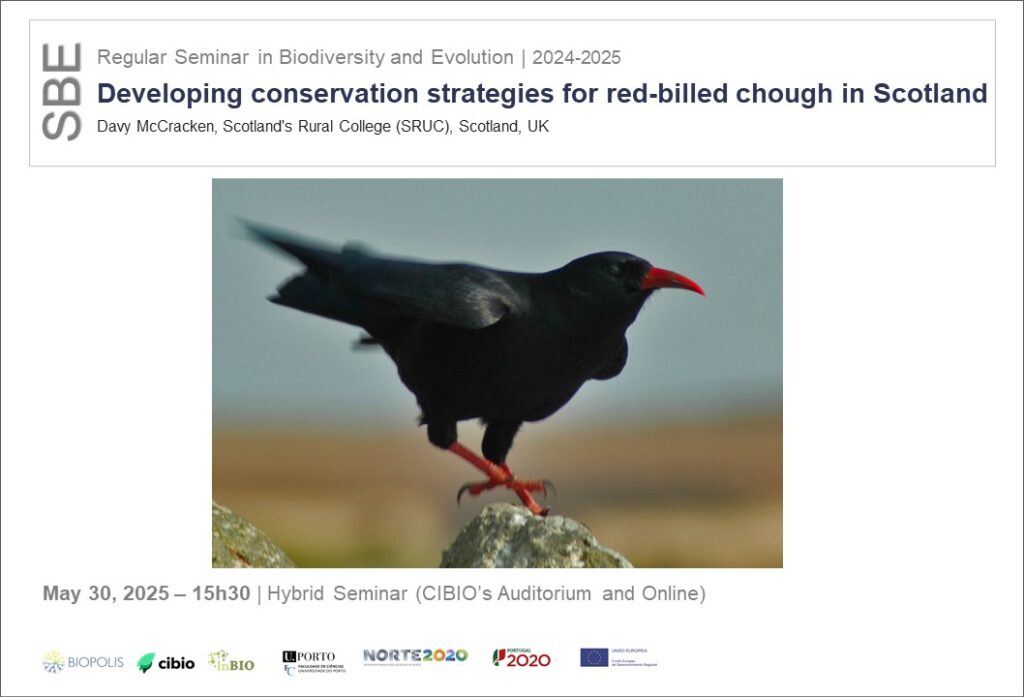
Developing conservation strategies for red-billed chough in Scotland
Davy McCracken, Scotland’s Rural College (SRUC), Scotland, UK
May 30, 2025 | 15h30 | Hybrid Seminar (Zoom Link: https://videoconf-colibri.zoom.us/j/99797933081)
This presentation will provide an overview of the challenges associated with the development of conservation strategies for the red-billed chough (Pyrrhocorax pyrrhocorax) in Scotland. The chough population has decreased in size and range markedly over the last 30 years and is currently restricted to the Hebridean islands of Islay and Colonsay. The cause of this decrease is low first-year survival (from fledging to age one year) attributed to low food abundance and/or availability. Ideally, the increases in food that are required to ensure population persistence would be achieved through effective grassland habitat management that increases availability and abundance of the chough’s invertebrate prey. However, given the urgent need to increase first-year survival to ensure short-term population persistence, emergency supplementary feeding of choughs has been undertaken on Islay since 2010. In addition, in response to observations of pathologically significant parasite infections in sub-adult choughs, targeted anthelminthic treatments have been carried out since 2014. The Scottish chough populations are isolated from other UK chough populations and have relatively low genetic diversity. This isolation coupled with small population size means that inbreeding is inevitable, and is likely to decrease survival and/or reproductive success (i.e. ‘inbreeding depression’). If chough survival and/or reproductive success are limited by inbreeding depression, then resources invested in grassland management, supplementary feeding and parasite treatments (i.e. ‘ecological management’) may not have the desired effect of ensuring the persistence of choughs in Scotland. Management to reduce inbreeding (i.e. ‘genetic management’, through population reinforcements) therefore needs to be considered alongside ecological management. However, genetic management may itself be ineffective, and indeed wasteful, if ecological conditions more favourable for survival are not restored.
More information here